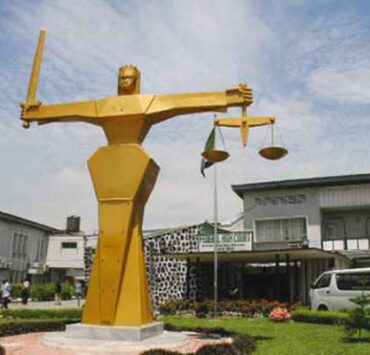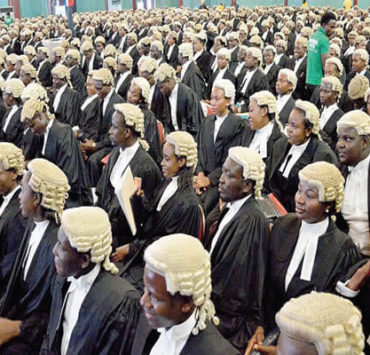This Was a Serious Breach That Requires a Significant Penalty: A Brief Summary of the Case Between The Premier League v. Everton Football Club By Ayomide Eribake

Lawyard is a legal media and services platform that provides…
1.0 Introduction.
A few days ago, news broke that Everton Football Club had been docked 10 points, effective this current 2023/24 season. The news brought about various opinions and thoughts – with most, including Everton fans, and pundits, arguing that the consequences were rather stringent, considering other unconnected factors. On the other hand, others highlighted the charges against another football club, which is also being investigated. However, this paper seeks to breakdown the decision of the Independent Commission in the matter between The Premier League v. Everton Football Club.
2.0 Background.
Everton FC had been charged for breaching the Premier Leagues Profitability and Sustainability Rules (PSR), which is like that of the UEFA Financial Fair Play (FFP) Rules. The crux of these rules is simply to the extent that clubs are sustainable in terms of their spending – and more importantly, do not make a negative (or loss) of more than £105 million pounds under Rule E51. The Panel noted that:
The PSR regime is designed to ensure that clubs are financially responsible and do not spend beyond their means. The PSR guards against unlimited cash injections from owners to ensure clubs operate within their own means, with the aim of protecting the long-term financial viability of clubs and the league.
Simply put, the rule ensures clubs work with the resources available to them – although they are owned by billionaires. In this case, Everton were charged with having a loss of £124.5 million for the 2021/22 season, which is £19.5 million above the acceptable threshold. This, as well as several points, were noted by the Commission, including:
* While clubs are allowed to spend within their budget, they are also allowed to have limited financial support from their owners;
* Costs alluded to be “in the best interests of football” are excluded when calculating PSR;
* Under the PSR, clubs are allowed to make losses, that do not exceed 105 million; and
* While investigating PSR claims, the Premier League makes use of materials put before it by the club.
When Everton was acquired by their former owner, Farhad Moshiri, he had two major plans, which were to: build a new stadium for the club, as well as improve the squad with quality players – which were described as a “challenging plan”. The player investment strategy was twofold: buy the players, to ensure a top finish in the Premier League, and the improvement in places (especially with increased revenue) will be key to funding future players. The strategy was aimed at reducing financial input from the owner. Mr. Moshiri was also dedicated to building the stadium, which was to cost a total of £760 million to construct – with a majority of funding coming from Mr. Moshiri and third-party lenders.
In the judgement, the following points could be identified:
Everton were unable to meet their PSR duties, as the building of the new stadium required significant funding;
* They couldn’t meet their target in terms of player sales and clubs drove a hard bargain when buying players – for example, they had targeted an income of 80 million for the sale of Brazilian forward, Richarlison, but could only agree to a sale of 60 million with Tottenham Hotspur.
* The termination of the contract of Player X, who had been signed for a huge sum in 2017, and was a key player for the team, affected the team’s on- field performance, which also affected how much the club was to earn;
* Lastly, the effect of the Russia-Ukraine war affected their negotiation to sell the naming rights of the stadium to USM Services Limited for 10 million for a period of 20 years, after the sanctioning of Russian companies by the UK government.
3.0 Pleadings.
In its complaint against Everton, the Premier League argued that proper application of the PSR would see Everton have a loss of £120.8 million for the FY 2022. In its pleading, Everton argued that it had not breached the rules, and raised the above points as mitigating factors.
In it reply, the Premier League took issue with the exclusions by Everton and challenged the mitigating factors raised by Everton.
In its Amended Answer, Everton abandoned its claim to be entitled to additional exclusions and admitted to exceeding the PSR threshold by £7.9 million. This was again disputed by the Premier League, who maintained the threshold was breached at £124.5 million, and also rejected any claim of mitigating factors.
Further, it is important to note that the Premier League had applied for an expedited hearing for the proceedings to be conducted before the end of the 2022/2023 season. However, the Commission decided that it would be unrealistic and procedurally unfair to Everton.
3.1 Amended Pleadings
In its amended pleadings, the Premier League advanced four salient factors which it argued aggravated the breach of the PSR by Everton. They are:
* The fact that Everton had significantly overspent on players and did not take steps to reduce its expenditure.
* That Everton had breached the £105 million threshold loss.
* Everton had submitted misleading information about the cost of financing their stadium.
* That Everton had failed to sell a player, contrary to its Covid- related representation.
On the other hand, Everton challenged the claim of its breach of the PSR, and advanced six factors as mitigating factors for the breach, including:
* The stadium post-planning interest charges of £9.3 million could have been treated as capital expenditure.
* The loss accrued from terminating the contract of player X.
* Everton were prevented from selling players due to Covid.
* The clubs had cooperated with the Premier League during its PSR challenges, amongst others.
4.0 Issues.
The Commission raised several issues, which shall be stated (and the reasoning and decisions of every issue also highlighted).
4.1 The extent of the breach by Everton:
First, Everton argued that a portion of payments made were paid as Transfer Levy and sought to deduct it alongside its Youth Development Expenditure from the PSR. The Premier League disagreed, noting that historically, no club had sought to make such deductions from the PSR calculation in that manner. The commission agreed with the position of the Premier League, concluding that no exclusion can be made for Everton, and the sum of £7.6 million deducted by Everton must be added as a loss in the PSR calculation.
Further, it was identified that the financing of the stadium was majorly done by Mr. Moshiri through interest free loans, as against the pre-planning interest charges on loans from commercial third parties posited by Everton with respect to the stadium. Everton’s counterfactual analysis was however recognised by the Commission but was held to be uncertain for the Commission to decide on. In making its decision, the Commission held that the pre-planning stadium interest on commercial loans from third parties cannot be excluded from the PSR calculation.
4.2. The appropriate sanction:
The Commission declined to adopt the formula proposed by the Premier League and opted to determine the sanction on the circumstances of the case.
The Premier League therefore identified four heads to guide the Commission in its decision-making, including:
* The punishment to be meted – a PSR breach is a serious breach of the rules at any level.
* To vindicate clubs that had complied with the PSR.
* That the sanction must be able to deter clubs that may be tempted to breach the PSR.
* To protect the integrity of the sport.
The points argued by the Premier League were not disputed, rather it focused on arguing on the practicality of the principles to the facts of the case. In making its decision on the appropriate sanction, the Commission noted that:
The party asserting an aggravating or mitigating factor bears the burden of proving that factor on the balance of probabilities.
Other issues raised by the Commission include:
* The principle to be applied when determining the appropriate sanction;
* Determining the facts capable of being held to constitute an aggravation;
* What matters would be held to constitute an aggravation; and
* What matters put forward by Everton will be held to be mitigating factors.
4.2.1 Aggravating Factors.
The Premier League advanced 4 factors (3 of which were recognised by the Commission) which it noted aggravated the default by Everton. First was the fact that Everton had consistently overspent despite being warned repeatedly; second was the fact that Everton had deliberately misled the Premier League on the source of its funds for the development of its stadium; and third was the fact that Everton had misled the Premier League on its intention to sell player Y.
4.2.2 Mitigating Factors.
In response, Everton identified six mitigating factors with regards to its alleged breach of the PSR. The factors raised by Everton include: the post- planning interest on the development of the stadium; the fact that its PSR calculation showed a downward trend in terms of losses; its decision to not take action against Player X; the effect of the war in Ukraine; the impact of Covid on the transfer market, and sale of players; and the fact that it had been transparent and cooperated with the Premier League.
5.0 Nature of Sanction
In determining the nature of sanction, the Premier League argued for points deduction, as it would meet the requirements of the aggravations noted above, and also relied on the decision in Sheffield Wednesday FC vs. The Football League Ltd.
Everton however, disagreed, and proposed a financial penalty of a sporting sanction – being a transfer ban.
6.0 The Decision.
In making its decision, the Commission noted that there was no “fixed formula” to be applied. The Commission noted that the position Everton had found itself was one of its makings, and Everton had the responsibility of complying with the PSR regime. The Commission further noted that it could not ignore Everton’s wrong despite taking a chance on its decision having a positive result – noting that it was the failure of Everton to manage its finances.
Hence, the Commission noted as follows:
This was a serious breach that requires a significant penalty. The Commission considers that it should order an immediate deduction of 10 points.
7.0 Conclusion.
The Author opines that the decision of the Commission created a precedent for future cases, and also highlights the need for the Premier League to include in its rules, binding consequences for breaching the PSR.
Lawyard is a legal media and services platform that provides enlightenment and access to legal services to members of the public (individuals and businesses) while also availing lawyers of needed information on new trends and resources in various areas of practice.













